Iran Summons British Envoy Over Journalist Release Comments
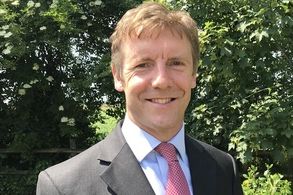
The British Ambassador to Iran has been summoned to Iran’s foreign ministry after he published comments calling for the release of jailed journalists.

The British Ambassador to Iran has been summoned to Iran’s foreign ministry after he published comments calling for the release of jailed journalists.
Simon Shercliff tweeted on Tuesday, acknowledging Iran's celebration of August 8 as the 'Day of the Journalist'. The ambassador expressed solidarity with journalists facing hindrances in their work and called for the release of arbitrarily detained individuals, including journalists.
The Iranian Ministry of Foreign Affairs deemed these remarks as "irresponsible, and out of diplomatic norms," asserting that such comments amounted to interference in Iran's internal affairs and were unacceptable. Shercliff was then summoned to the ministry.
"The UK, with its indefensible record towards the Iranian people, is not in a position to comment on the Islamic Republic of Iran. Here is the Islamic Republic of Iran, and we will not allow the sovereignty of the country to be neglected with arbitrary actions," stated the foreign ministry.
Iran has been facing international criticism for its press freedom record for decades. The country ranks third globally in terms of incarcerated journalists, trailing only China and Myanmar, according to recent reports. The 2023 World Press Freedom Index, compiled by Reporters Without Borders (RSF), positioned Iran at the lowest rung on the list, only marginally above countries such as Vietnam, China, and North Korea.
Over the years, Iran has detained hundreds of journalists, writers, and bloggers, often on charges of jeopardizing national security through the expression of their opinions. Tragically, some of these individuals lost their lives while in custody.
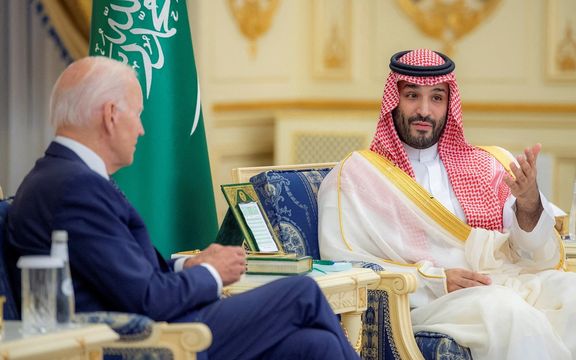
The United States is pushing for a deal between Israel and Saudi Arabia, the success of which can further isolate the Islamic Republic of Iran in the region.
Iranian government-controlled media have labeled any potential Saudi Israeli deal a regional security threat, seeing the clear implications of a broad pro-West front emerging in the Middle East. Some analysts in Iran have said that Riyadh anticipating a l agreement with Israel, restored diplomatic relations with Tehran in March.
Axios on Wednesday cited four Israeli and US officials as saying that Israeli Prime Minister Benjamin Netanyahu seeks to get a security agreement with the US focused on deterring Iran in the context of the mega-deal the Biden administration is trying to broker with Riyadh and Jerusalem.
According to the report, Netanyahu brought up the idea for a US-Israeli security agreement during his last phone call with President Biden in July, telling the American president that he wants to send his confidant and Strategic Affairs Minister Ron Dermer to Washington to present a proposal in detail.
The details of Netanyahu's proposed agreement are not known but Israeli officials say it focuses on US security guarantees around a possible military nuclear threat from Iran. According to these sources, Netanyahu sees the US-Israeli security agreement in the context of the broader deal the US is trying to reach with Saudi Arabia that would also include a Saudi-Israel normalization agreement.
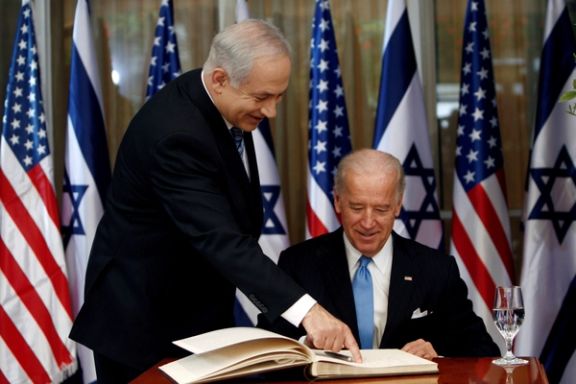
The Biden administration and Saudi officials are also discussing a possible security agreement, but the Washington is reluctant to include a NATO-style Article 5 commitment, which Riyadh wants. Article 5 provides that if a NATO ally is the victim of an armed attack, each and every other member of the alliance will consider it as an armed attack against all members and will take the actions it deems necessary to assist the ally under attack.
According to an unnamed US official, the Biden administration did not accept the Saudi request but did agree to discuss what some US officials are calling an "article 4.5" commitment — a similar security guarantee that would fall short of the Saudi expectations but would still be significant.
Moreover, The Wall Street Journal reported on Wednesday that the US and Saudi Arabia have agreed on the broad contours of the deal for Saudi Arabia to recognize Israel in exchange for concessions that would help promote the creation of a Palestinian state and civilian nuclear help as well as the security guarantees.
The WSJ claimed that US officials are cautiously optimistic that Washington and Riyadh would hammer out the finer details of what would be “the most momentous Middle East peace deal in a generation” within the next nine to 12 months. However, they warned that they face long odds. “There’s a work plan to explore the elements of what this would be and test the boundaries of what’s possible,” said one senior US official.
The efforts for what the so-called ‘mega deal’ accelerated after Saudi Crown Prince Mohammed bin Salman met in Jeddah two weeks ago with Jake Sullivan, President Biden’s national security adviser.
Biden’s efforts to finalize the deal before the US presidential election campaign starts indicate Washington’s aspirations to remain a central player in the Middle East, perhaps to contain Iran, isolate Russia, and neutralize China’s bid to supplant Washington’s interests in the region.
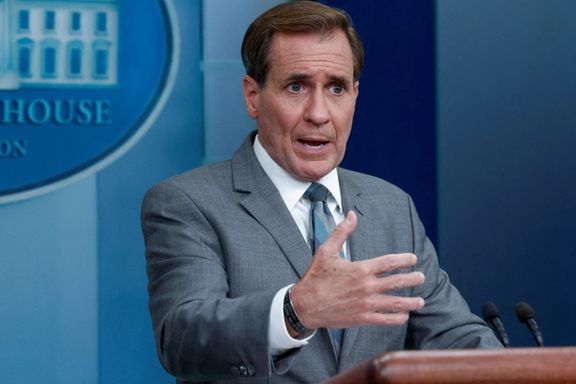
Later on Wednesday, US National Security Council spokesman John Kirby said that negotiators still had a long way to go, something that Haaretz framed as White House throwing cold water on reports of Saudi-Israel normalization.
Emphasizing that the reports gave the impression that the discussions are farther along and closer to some sense of certainty than they actually are, Kirby said, "There are still a lot of conversations that have to occur before we get there. Bottom line: there's no agreed-to set of negotiations, there's no agreed-to framework to codify normalization or any of the other security considerations that we and our friends have in the region. But there is a commitment by the administration to keep talking and to keep trying to move things forward."
In an op-ed for the WSJ on Tuesday, Israeli Foreign Minister Eli Cohen confirmed that the US should give Saudi Arabia a guarantee to defend it against Iranian nuclear aggression as part of a normalization deal with Israel. Comparing Iran's potential nuclear threat to North Korea’s actual nuclear threat to South Korea, Cohen said, “The US defense commitment acts as South Korea’s deterrent against Northern aggression. A comparable American defense pledge could reassure Middle Eastern nations, primarily Saudi Arabia and the Persian Gulf states.”
While US, Israeli, and even Saudi officials – such as Foreign Minister Faisal bin Farhan – believe that normalizing ties between Jerusalem and Riyadh would bring significant benefits to the region, Iran -- quite counterintuitively – keeps warning regional countries against it as efforts to expand the Abraham Accords to include Saudi Arabia seem likely to bear fruits.

A mother and daughter were harassed for donning optional attire in defiance of mandatory hijab, and the young girl passed out after pressure from government agents.
The incident happened at a metro station in the southern city of Shiraz, when a confrontation took place between authorities and a mother and daughter who were wearing optional attire in defiance of mandatory hijab.
Reports say officers initially obstructed the two females from entering the metro station and this sparked a prolonged verbal exchange. After the intervention of onlookers, the duo circumvented the government agents and gained access to the metro station. However, as they ascended the escalator, the strain of the situation reportedly took a toll on the young girl, and she fainted, losing consciousness.
Bystanders rushed to her aid upon the escalator's deactivation and medical personnel rushed to the scene. Subsequent reports indicate that law enforcement was called upon to disperse the crowd and discourage further filming of the incident.
This occurrence follows a broader pattern of intensified efforts by conservative factions to reinforce hijab adherence throughout Iran and has reignited the ongoing debate over the mandatory hijab rule. This recent wave of protests has intensified following the death of Mahsa Amini in police custody last September, which was a consequence of the morality police campaign targeting women for the removal of hijab.
Historically, individuals found to be contravening hijab regulations have been subject to monetary fines, while repeat offenders potentially faced more severe penalties, including incarceration and corporal punishment. Activism against the mandatory hijab decree also carries significant legal ramifications, including the prospect of prosecution and imprisonment.
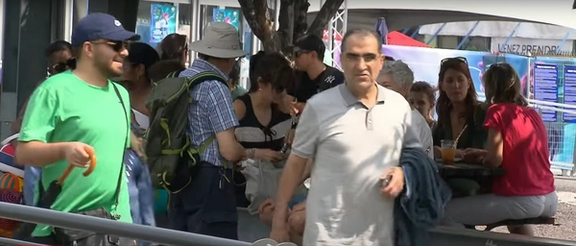
A former Iranian minister has been spotted in Montreal, leading to uproar about Canada’s loose immigration controls in allowing entry to regime’s officials.
The footage circulating on social media captured Hassan Ghazizadeh Hashemi, the former Health Minister in President Hassan Rouhani's administration, strolling through the streets of Montreal, accompanied by his family. The video is part of promotional materials for Quebec's tourism industry.
“Canada has designated the Islamic Republic of Iran as a regime that has engaged in terrorism and systematic and gross human rights violations,” Marco Mendicino, former Minister of Public Safety announced in November 2022.
After years of calls by human rights activists and Iranians dissidents, Canada finally announced sanctions last November against Iran’s Revolutionary Guard (IRGC), permanently banning over 10,000 of its officers and other senior officials from entering Canada.
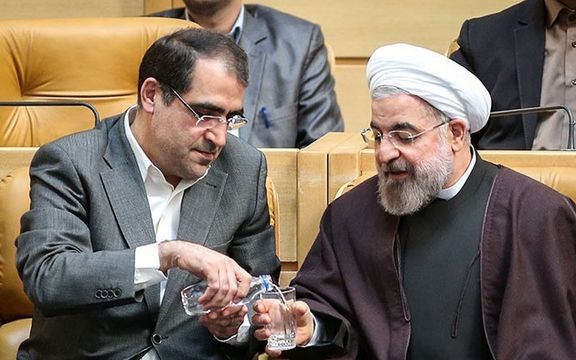
“We’re using the most powerful tools at our disposal to crack down on Iran's brutal regime. We'll be pursuing a listing of IRGC leadership under our Immigration and Refugee Protection Act, making over 10,000 senior IRGC members inadmissible to Canada,” Prime Minister Justin Trudeau said at the time.
According to Marco Mendicino, a member of parliament who was the Minister of Public Safety at the time, the entry ban into Canada was not limited to just members of the Revolutionary Guards, but also included heads of state, members of the Cabinet, ambassadors, senior diplomats, members of the judiciary, senior military and intelligence officials and senior public servants.
No Canadian official has yet commented about Ghazizadeh’s presence but the ban on regime officials “applies to those who were senior officials at any time from November 15, 2019, onwards.” Ghazizadeh was elected as the health minister in 2012 and resigned from this position in January 2017.
Nevertheless, based on the spirit of the legislation and the designation of the regime as a sponsor of terror, Ghazizadeh’s admission raises questions.
Canada-based activist and opposition figure Hamed Esmaeilion -- whose daughter and wife were killed by the IRGC in the downing of a Ukrainian airliner in 2020 -- took to Twitter on Wednesday in protest to Ghazizadeh’s presence in Canada despite the ban.
He called on Public Safety Minister Dominic LeBlanc and Immigration, Refugees and Citizenship Minister Marc Miller to follow up on the case. “We need a response and action now,” he said.
Similar calls for action abound on social media platforms with the Iranian Twitterati posting controversial remarks or actions by Ghazizadeh during his term as the health minister. Hailing from Khorasan province, Ghazizadeh’s family has always been close to the ruling regime in Iran. One of his cousins, Amir-Hossein Ghazizadeh Hashemi, a lawmaker from 2008 to 2021 is now Ebrahim Raisi’s vice president and the head of Foundation of Martyrs and Veterans Affairs, a wealthy organization in Iran with hands in numerous construction projects. Another one of his cousins is Ehsan Ghazizadeh Hashemi, also a lawmaker since 2016 and a former senior official.
Canada broke off diplomatic relations with Iran in 2012, citing its support for the Syrian government, non-compliance with United Nations resolutions over its nuclear program, and fears for Canadian diplomats after protestors stormed the British embassy.
Critics of the Islamic Republic have repeatedly called on Western countries to restrict and prohibit the travel of Iranian officials and high-ranking figures to their territories, a measure meant to prevent Western countries from being a safe haven for the regime’s officials.
The families of victims of Ukrainian flight PS752, shot down by the IRGC, have held numerous rallies calling for tougher measures against Iran.
In September 2022, a Canadian journalist criticized Ottawa for spreading a “lush welcome mat” for rich Iranians linked to the regime but refusing visas to relatives of Flight PS752 victims. Earlier in 2022, several human rights groups issued an open letter calling on Canada to stop former officers of Iran’s military and other human rights violators from entering the country after a short video of a retired commander of the Tehran's Police forces and the IRGC, Morteza Talaie, working out in a gym in Canada went viral.
Despite these calls, senior figures are being spotted in foreign countries. In one of the latest cases in early July, German media confirmed the presence of Hossein-Ali Nayeri, a 'hanging judge' involved in the summary trial and execution of thousands of Iranian prisoners in the 1980s, receiving medical treatment in a hospital in Hanover, Germany.
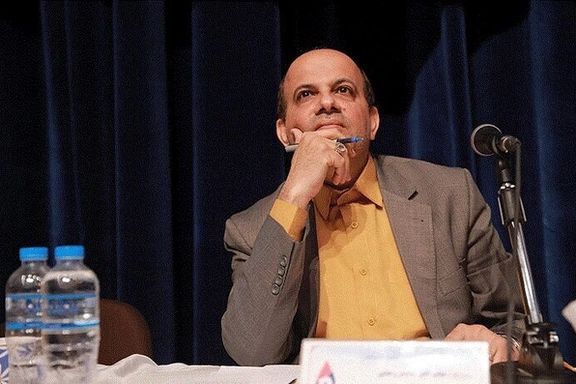
The National Iranian Oil Company (NIOC) has announced plans to boost its oil production by an additional 250,000 barrels per day (bpd) by the end of the summer.
According to a report by the semi-official Tasnim news agency, this move is expected to elevate Iran's total daily oil production to 3.5 million bpd. NIOC Managing Director Mohsen Khojasteh-Mehr was quoted by Tasnim as stating, "Iran's oil production will reach 3.5 million bpd at the end of summer."
The backdrop of this production surge lies in the aftermath of the 2015 Joint Comprehensive Plan of Action (JCPOA) agreement, which saw the lifting of international sanctions on Iran and a subsequent increase in revenues. During this period, Iran's oil revenues temporarily soared to $66 billion in 2017. However, this upward trajectory was disrupted after the United States withdrew from the JCPOA in May 2018, which led to renewed sanctions that intensified a year later. As a result, Iran's oil exports faced a significant decline, falling to between $15 - $20 billion by 2020. The tide began to turn towards the close of that year after the election of US President Joe Biden, who expressed intentions to reinstate the JCPOA. China, in response, embarked on a trajectory of heightened oil imports from Iran.
However, the recent influx of revenue from increased oil exports has sparked questions among economists and business analysts in Iran and around the world. Notably, Iran's national currency, since the beginning of the year, has lost more than 25 percent of its value against the dollar on the open market. Critics contend that the substantial oil revenues have not yielded the anticipated positive impact on the economy, due to government tax policies and other factors.
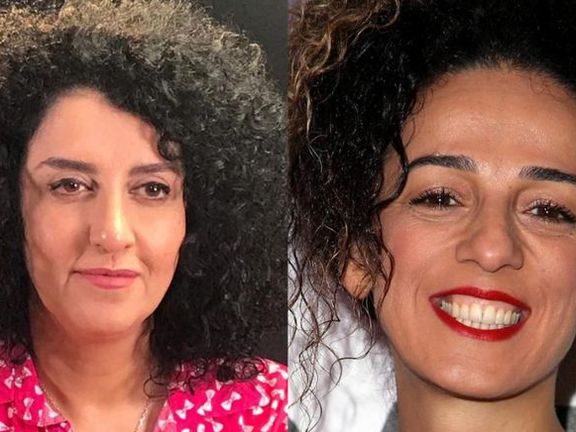
Three Iranians have been nominated for the 2023 Nobel Peace Prize, according to unofficial sources and those who nominated them.
Masih Alinejad, a prominent Iranian activist, has been nominated for her steadfast commitment "to fighting for freedom of expression, democracy, and women's rights in Iran”. Alinejad garnered global attention when Iran's Intelligence Ministry's attempted abduction of an Iranian American journalist was exposed by US authorities in July 2021.
Narges Mohammadi, an imprisoned Iranian human rights activist, has also secured a nomination for her pivotal role in representing the aspirations of countless courageous Iranians. She is recognized as representing hundreds of thousands of brave Iranians, women and men, who are willing to risk everything to bring peace and freedom back in Iran.
Jafar Panahi, a distinguished Iranian film director and screenwriter associated with the Iranian New Wave film movement, has been nominated for his efforts to convey the societal challenges that affect the lives of ordinary Iranians in their everyday lives.
The international peace prize, established in accordance with Alfred Nobel's will, is scheduled to be revealed in Oslo, Norway, in October 2023, with the award ceremony set for December 10.
The Norwegian Nobel Committee disclosed that they received a total of 305 official candidates for the 2023 Nobel Peace Prize, comprising 212 individuals and 93 organizations. While nominations remain confidential, certain Norwegian parliamentarians and academics are permitted to publicly announce their preferred candidates to generate awareness for both the nominee and the nominator.